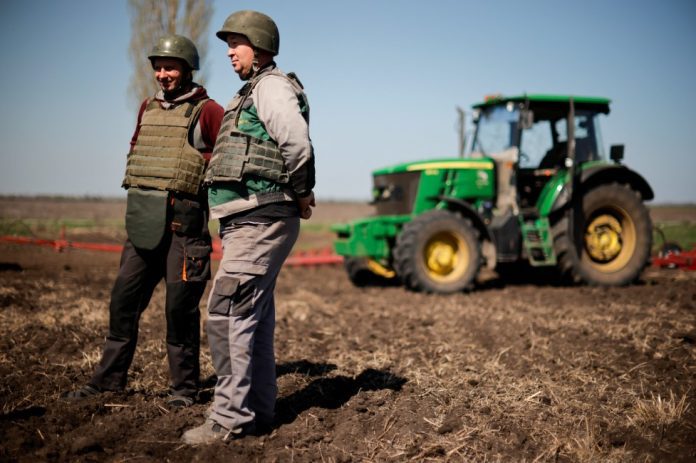News in brief: Farmers in Ukraine are taking risks to return to their farms in areas that were previously occupied by the Russian army, despite the threat of landmines that have been left behind. They also have to face rising cost of logistics, restrictions and more.
In Ukraine, farmers are braving the risk of exploding landmines to return to their farms. According to a story published by ABC News, the threat to their lives is made more severe by the rising cost of logistics.
The report claimed that the Russian army that once occupied territories in Southern Ukraine left explosives during their retreat. These areas contain vast agricultural lands that are currently inaccessible, at least, not without the possibility of bodily harm or death.
Yet, some farmers and workers are seeing it as a better option than doing nothing. “If we sow, if we grow crops, people will have jobs, salaries and they will have a means to feed their families. But if we donât do anything, we will have nothing,” a farmer named Valerii Shkuropat said.
Working with deminers, several workers have taken to driving carefully around rigged farms and picking up mines. However, this job is not as straightforward as it sounds and has already led to casualties.
The period between April and May is typically the best time to plant corn. So, there is no time for the farmers to delay if they want to reap this year’s harvest. Although, that is not the end of their worry.
Ukraine farmers decry astronomic rise in logistics costs
As this article explains, the link between logistics and agricultural productivity is clear. For farmers in Ukraine, the cost of shipping grain has grown by more than 70% since the Russia conflict broke out.
The Black See grain deal, which was supposed to provide succor, has not really succeeded. As we reported, the deal led to glut in neighbouring countries like Poland, Bulgaria, Hungary and Slovakia. In response, they placed restrictions on some grain products.
In addition, with the deal in its last phase and no new one in place, the traditional shipping route for Ukraine big farms is once again clogged. Inspections take much longer and losses accumulate as the delay mounts. Alternative routes are more expensive and slower.
Also, not all farmers and workers are taking the risk to face the threat of death. Some have abandoned their farms and harvests, while others are moving away from seeding to focus on other cropping ventures.
Ukraine was the fifth largest exporter of wheat in 2021 and was responsible for 40% of Sunflower meal (useful for livestock feed) export the same year. Its important to international food cannot be overstated.
With 12% of its land contaminated with mines and less land being cultivated in 2023 than last year, the country’s productivity is expected to come out low. Already, Nibulon’s CEO Andrii Vadaturskyi said that 40% less wheat has been planted and 50% less corn would be planted in the country. It is indeed a sobering thought.



